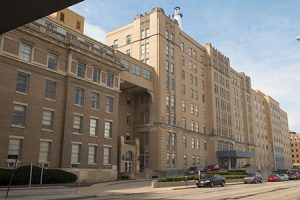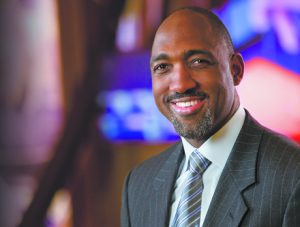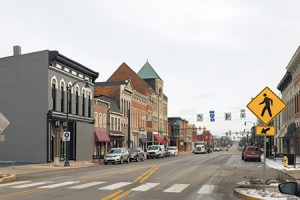Eli Lilly’s next big push likely to come in pain treatments
The Indianapolis-based drugmaker has several pain medications in the pipeline, including potential treatments for migraine headaches, arthritis and chronic back pain.
The Indianapolis-based drugmaker has several pain medications in the pipeline, including potential treatments for migraine headaches, arthritis and chronic back pain.

Indianapolis-based Eli Lilly and Co. on Tuesday reported quarterly revenue and adjusted earnings that exceeded analyst forecasts.
The drug industry set several quarterly records for lobbying spending in the first three months of 2018, but Indianapolis-based Eli Lilly and Co. actually reduced lobbying expenditures.
Indianapolis-based Hc1.com Inc., which sells customer-management software to health care enterprises, has raised three sizable rounds of capital in four years.
Drugmakers will have to offer a much more generous discount to Medicare beneficiaries who fall into the so-called donut hole coverage gap.

By the end of the year, officials expect to unveil its master plan to remake the state’s largest hospital—currently an amalgamation of ancient health care amenities and modern facilities.
Under the agreement, Lilly will pay Sigilon Therapeutics up to $410 million if the technology hits certain milestones.
What most people see as an annoyance, some prescription drop users say is grounds for a lawsuit.

Derica Rice, 53, one of the nation’s most powerful black executives, retired from Indianapolis-based drugmaker Eli Lilly and Co. in December, after the company passed him over when naming a new CEO.
The company’s board is asking shareholders to support two corporate-governance proposals, including one that would eliminate a requirement that buyout bids garner at least 80 percent shareholder approval.
FDA Commissioner Scott Gottlieb aimed particular criticism at giant pharmacy benefit managers that contract with health plans to administer coverage of drugs, saying the industry’s tactics have stymied cheaper copies of expensive biotechnology drugs.
Eli Lilly CEO David Ricks’ first year in charge was marked by a wave of activity, including a huge corporate restructuring. The company’s stock price climbed about 6.2 percent during the year.
American Pain Consortium Holdings LLC, led by Dr. Edward J. Kowlowitz, plans to operate 15 to 20 pain-management practices within three years.
The state’s largest health care system saw gains in admissions, inpatient days and surgeries, but visits to the ER and radiology exams dropped slightly.

Even before news broke that an unidentified health care system had lined up 30 acres at 96th Street and Spring Mill Road for a massive development, projects costing billions of dollars were underway or on the drawing board across the region.
Hospital systems have been opening urgent-care centers at a fast clip, using the small storefront locations to expand revenue, reduce demand on their emergency rooms, and get patients into their networks.
The Indianapolis-based drugmaker said the medicine, called Taltz, proved effective for treating a type of back stiffness, and hopes to submit it for government approval this year.

The fast-growing health system, owned by Hamilton County, plans to begin construction this year and open the centers in Carmel, Fishers and Indianapolis in 2019.
As a candidate, President Trump advocated Medicare negotiations and allowing consumers to import medicines from abroad. His current strategy recommends changes to policies that the administration believes unwittingly lead to higher prices, and suggests ways to speed drugs to market and increase competition.

Since October, when Eli Lilly and Co. announced it was reviewing whether to sell or spin off Elanco, Greenfield city leaders have been wondering what the future holds for the city’s economy.